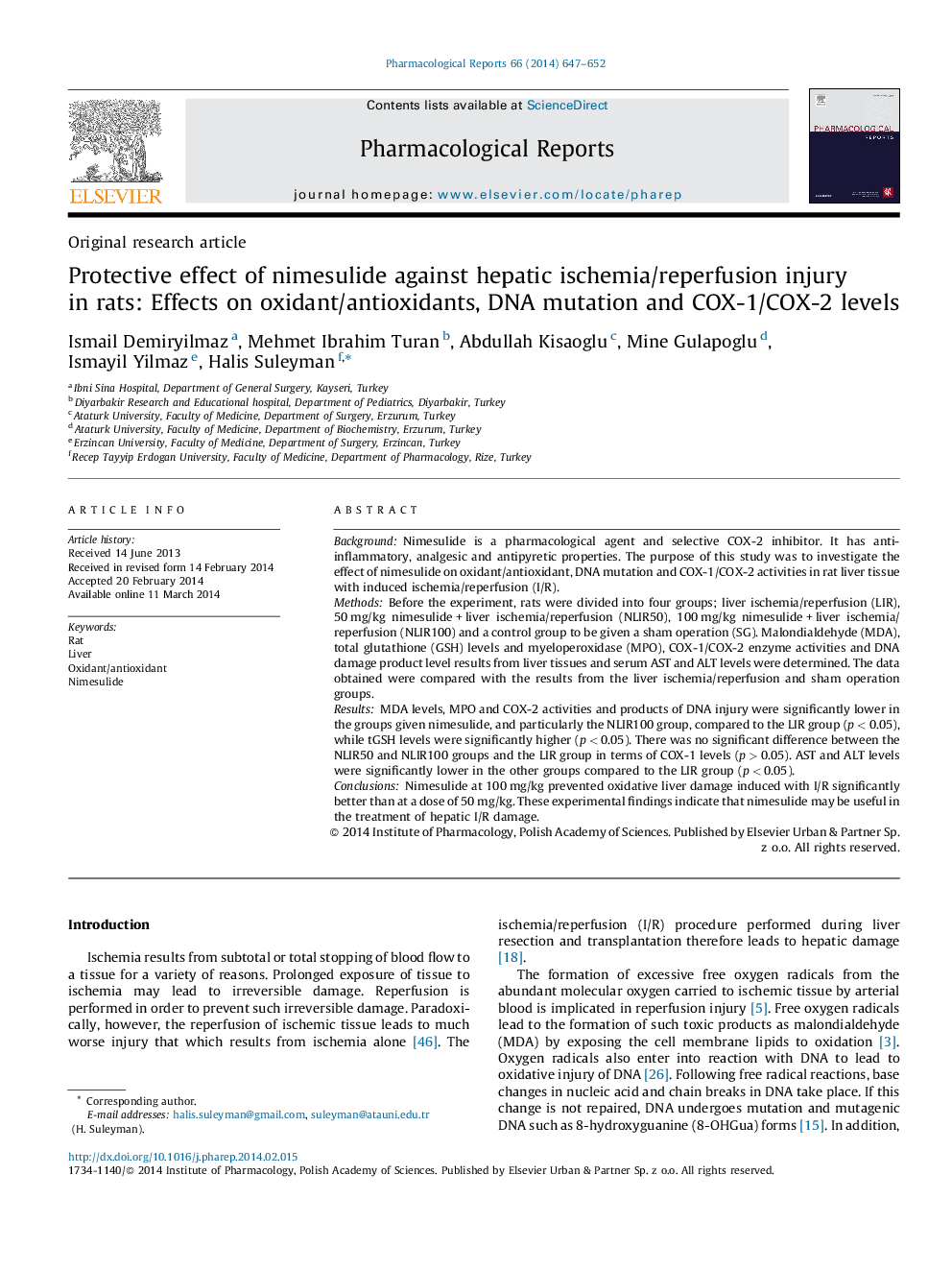| Article ID | Journal | Published Year | Pages | File Type |
|---|---|---|---|---|
| 2012099 | Pharmacological Reports | 2014 | 6 Pages |
BackgroundNimesulide is a pharmacological agent and selective COX-2 inhibitor. It has anti-inflammatory, analgesic and antipyretic properties. The purpose of this study was to investigate the effect of nimesulide on oxidant/antioxidant, DNA mutation and COX-1/COX-2 activities in rat liver tissue with induced ischemia/reperfusion (I/R).MethodsBefore the experiment, rats were divided into four groups; liver ischemia/reperfusion (LIR), 50 mg/kg nimesulide + liver ischemia/reperfusion (NLIR50), 100 mg/kg nimesulide + liver ischemia/reperfusion (NLIR100) and a control group to be given a sham operation (SG). Malondialdehyde (MDA), total glutathione (GSH) levels and myeloperoxidase (MPO), COX-1/COX-2 enzyme activities and DNA damage product level results from liver tissues and serum AST and ALT levels were determined. The data obtained were compared with the results from the liver ischemia/reperfusion and sham operation groups.ResultsMDA levels, MPO and COX-2 activities and products of DNA injury were significantly lower in the groups given nimesulide, and particularly the NLIR100 group, compared to the LIR group (p < 0.05), while tGSH levels were significantly higher (p < 0.05). There was no significant difference between the NLIR50 and NLIR100 groups and the LIR group in terms of COX-1 levels (p > 0.05). AST and ALT levels were significantly lower in the other groups compared to the LIR group (p < 0.05).ConclusionsNimesulide at 100 mg/kg prevented oxidative liver damage induced with I/R significantly better than at a dose of 50 mg/kg. These experimental findings indicate that nimesulide may be useful in the treatment of hepatic I/R damage.
